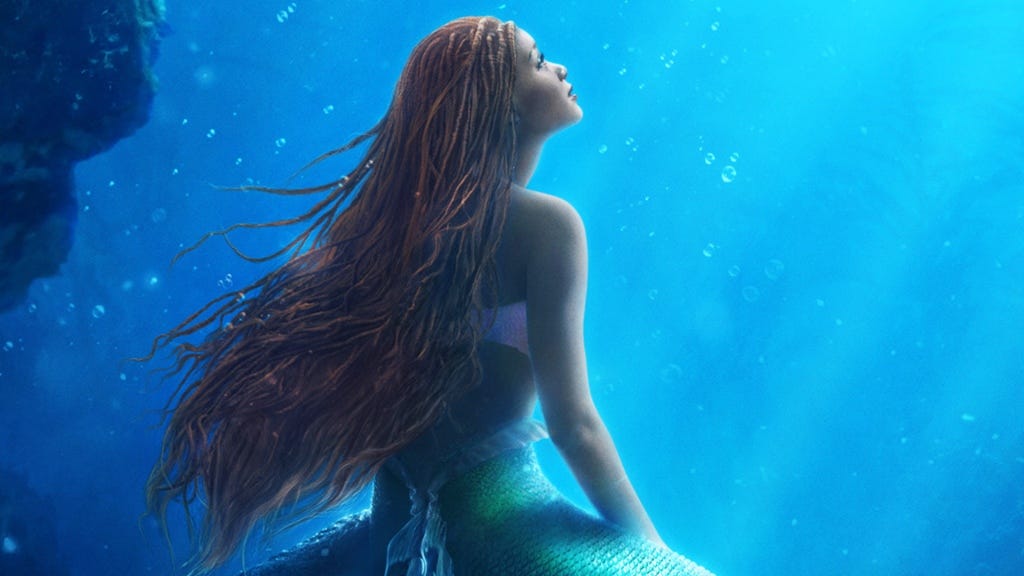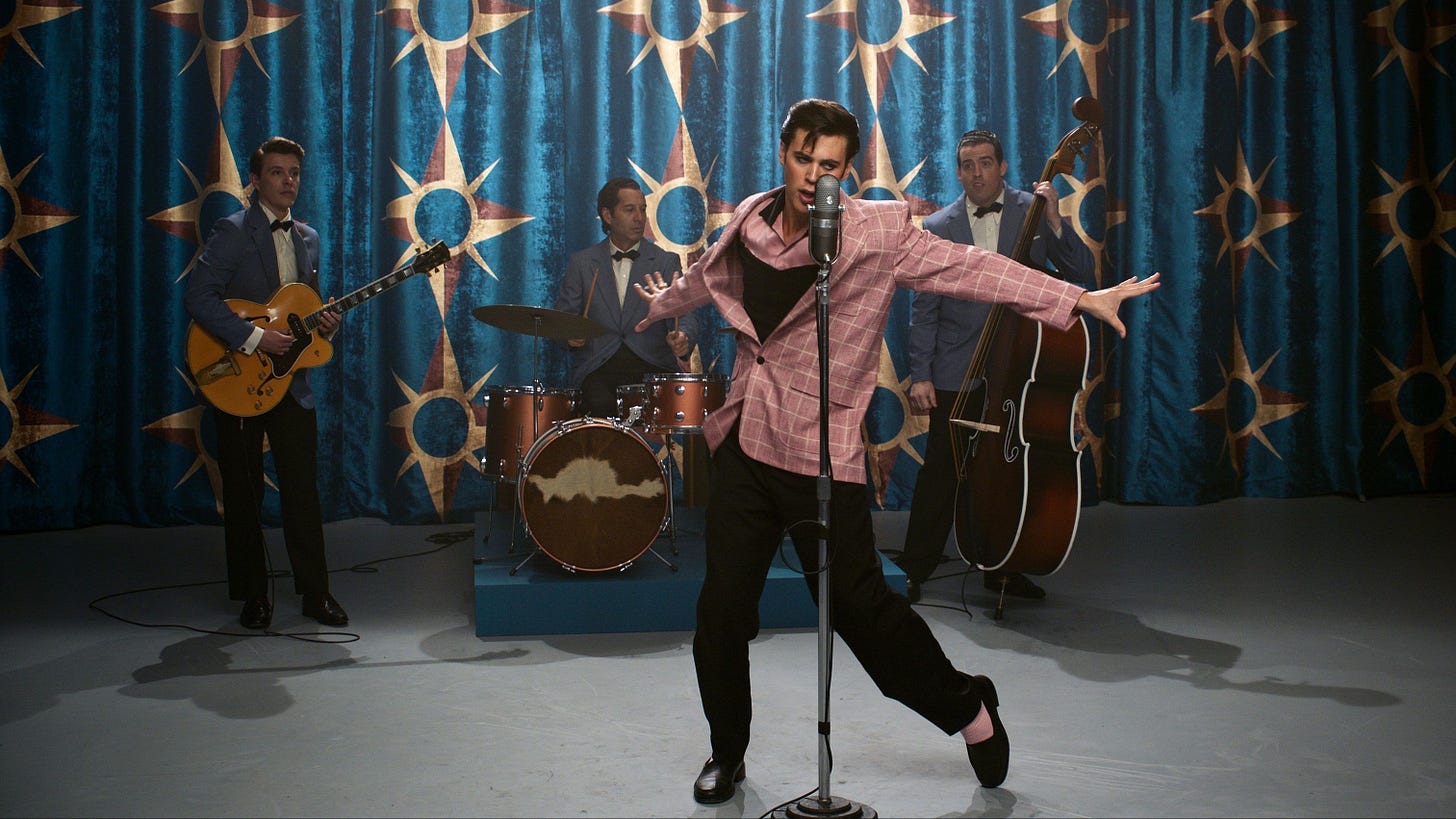My AP Lit teacher once said that one of the great joys of literature and film is that it allows its consumers to experience a time, place, or circumstance without actually living through it. This phenomenon lends itself well to stories that retell great tragedies, like James Cameron’s Titanic (1997). We viewers can hear the gushes of ocean water filling the ship, see the passengers scuffling for lifeboats and floatation devices, and feel the burning ice cold water swallowing us whole without actually having to live through it. The ability to evoke the senses makes media a superior storytelling device.
Nowadays, it seems like more and more of film and television is seeking to tell stories and evoke feelings that we viewers associate with the near and distant past. It’s no secret that the teased, technicolored, mustache and Levi-clad spirit of the 1980s has re-entered the cultural zeitgeist with Stranger Things (2016), It (2017), Bohemian Rhapsody (2018), and countless pop synth albums gaining popularity over the years. The style of the 1990s has long been revered since the Tumblr days, in which “aesthetic” photos of ripped jeans, flannels, and heavy eyeliner were shared with fervor.
Nowadays, fashion trends dip into decade after decade, as 1970s bell bottoms, Y2K low rise jeans, and even UGGs and Abercrombie-core see a resurgence. We consume countless biopics and remakes, praising today’s artists who are able to best emulate the artists of the past (e.g. Elvis (2022), Blonde (2022), Rocket Man (2019), The Social Network (2010), The Dropout (2022), Walk the Line (2005), Joker (2019)). Film Twitter fan-casts future biopics with ferocity, appointing Florence Pugh for the inevitable Hillary Clinton biopic and Millie Bobby Brown for the Britney Spears one. Every other week it seems like Disney is announcing production of a live action version of one of their animated films. We’re all obsessed with the past - the way it looked, the way it sounded, and the way it felt.
According to Dr. Krystine Batcho, the word “nostalgia” was formerly used to refer to homesickness. Throughout her archival research on the topic, she’s witnessed the sensation of people longing for their homeland across all cultures and historical time periods. It’s a pervasive feeling and one that clearly does not discriminate. Over time, the definition of nostalgia has semantically shifted, now meaning the notion of longing for or missing aspects of a person’s personal lived past. In addition to personal nostalgia, one can also experience “historical nostalgia,” or an emotional attachment to or longing for times in history that predate their own birth.
Dr. Batcho accurately describes the experience of nostalgia as “bittersweet.” When we’re hit with a wave of the sensation, we experience an uplifting sense of sweetness as we reminisce on a positive time from our past. We’re then hit with the bitterness: the reminder that the time we’re longing for is over and impossible to return to. In this piece by Harling Ross for Repeller, the writer acknowledges the pain that comes with nostalgia. It’s not necessarily “bad” pain, but the good kind of heartache that we feel when we watch a gut-wrenching scene in a romance movie. Nostalgia hurts so good.
It’s also no surprise that nostalgia is an expert marketing tactic. While we humans can be enticed by what is shiny and new, it is easiest for us to connect with what is familiar. When I think about the power of nostalgia, I often remember that scene in Ratatouille (2007), in which cold food critic Anton Ego is transported back to childhood upon tasting the vegetable peasant dish upon which the film is named. He becomes softer around the edges, more receptive to human connection and empathy. According to Dr. Batcho’s research, nostalgia is an incredibly pro-social phenomenon because of its ability to connect people through the remembrance of common human experiences.
In addition, nostalgia grants people the ability to come more in touch with their authentic self. Looking to the past gives us a greater sense of who we want to be in the future. We’re able to compare who we were previously to who we are now and use that information to pave a way forward.
Nonetheless, there are aspects of chronic personal and historical nostalgia that haven’t always sat right with me. On a micro scale, when I was in college, just about everyone from my family members to my dental hygienists told me that I was currently living through the best years of my life and that they would personally do anything to go back to their college years. Their own feelings of personal nostalgia seemed to overshadow their current lives, making them seem eager for a time travel machine to whisk them back to the past. As someone who was not enjoying their college experience at all, I thought to myself “really? Is this it?”
I asked myself similar questions upon meeting up with old high school classmates during holiday breaks in college, in which light reminiscence of the past turned into repetition of the same old stories again and again. Dwelling on old drama (“Remember when so-and-so was dating so-and-so”) until a line was crossed from entertaining to mournful.
Not to mention, far-right American conservatives seem to carry intense historical nostalgia when justifying their flying of Confederate flags and spewing of anti-immigration rhetoric. This nostalgia seems to possess a cherry-picking function, remembering only the so-called “good ol’ days” for certain sects of the population and choosing to forget the rest. Negating growth and empathy.
As much as it seems like there’s potential for nostalgia to be used to monger hate, Dr. Batcho’s research indicates that there is greater good in the feelings of nostalgia than bad. The caveat is whether a person’s current situation is tolerable or not. In this interview with the American Psychological Association, Dr. Batcho says “if people are unhappy for any reason with how things are today, they’re more likely to experience this sense that things must have been better in the past.”
In the context of the far right, living in seemingly more progressive times in American history may seem like a threat to the livelihood of the white straight male identity across the country. It doesn’t help that this type of rhetoric is co-opted by conservatives to win over constituents. Rhetoric that speaks to Americans “taking back” what’s theirs and returning their focus towards “traditional” values - those that were more widely adopted when people of color, women, and LGBTQ+ folks had even fewer seats at tables.

If one is threatened by change (even if that threat is merely a facade or marketing tactic), they’re going to turn to what is familiar. What’s certain. The whole world is continuing to survive through years that feel increasingly uncertain, with COVID-19, climate change, widening income inequality, police brutality, and reproductive injustice being just a few of the population’s concerns. Consuming media that takes us back to times that weren’t burdened by modern challenges is enticing. I can’t tell you how many times during the COVID-19 lockdown that I wondered why a group of people in an early 2000s movie weren’t wearing masks - until I quickly remembered.
I would assume that feelings of nostalgia would increase with old age, but research indicates that it peaks during young adulthood. This is the case because young adulthood is a time of inordinate instability. It’s a pivotal transitional period in contemporary human development when people are truly navigating independence for the first time and trying to architect their adult identity. I think this finding helps explain why Buzzfeed-era millennials are so quick to define themselves as “90s kids” or proudly label themselves as Disney adults. When trying to grapple with new adult challenges and cement an authentic, grown-up voice for themselves, it might feel most easiest to first travel backwards.
Upon gathering research for this article, I was fully prepared to write a revealing piece about the perils of nostalgia and its modern role as an antagonistic device a la the alt-right. I was surprised to uncover the psychological benefits empirical research has uncovered about nostalgia and its associations with tenderness and social connection.
Nevertheless, I think it’s important to view nostalgia through a bittersweet lens as opposed to a purely sweet one. That sucker punch feeling in our stomach when we realize that the past is in the past is important in bringing us back to the present. If we as a culture find ourselves too caught up in romanticizing the aesthetics of a past time, do we risk Trojan Horse-ing the values of that time? I’ve observed this in a similar fashion in contemporary gender politics, in which certain visual markers - like a straight boy with painted nails - signal “feminism” when they’re devoid of any action. The “Trad Wifes” and stay-at-home girlfriends of TikTok are another example of past values and aesthetics being romanticized to the point of regression. We like to think that we can avoid judging a book by its cover, but in the end, appearances mean something to us as a culture.
I too find myself marveling at the aesthetics of past time periods and enjoying a good biopic as much as the next person. Learning about history is fascinating and important. And trends, by nature, are cyclical - what was in back then will come around again in time. But perhaps there is more to learn when viewing the past - as well as the present - with a more nuanced fine tooth comb.
Why do we feel drawn to certain visuals - are they purely aesthetically pleasing or do they represent something important to us? What kinds of stories are we drawn to tell and retell? Are there different perspectives and interpretations that deserve to be highlighted, specifically those that are underrepresented in mainstream culture? Who and what are being left out of our tellings and retellings? Asking these questions may help us lean further into nostalgia’s sweet, soft nature in a more productive manner that takes nuance into account. Lingering in the “good” and learning from the “bad.”









never looked at it that way!! super interesting to think about